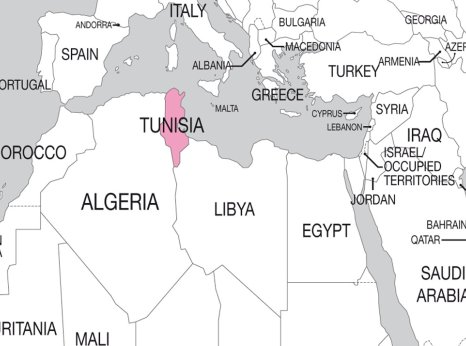Tunisia: Human Rights Defenders Arbitrarily Detained

From 3 May 2024 onwards, the Tunisian authorities launched an unprecedented crackdown on NGOs working with refugees and migrants, raiding at least three organizations and arresting or investigating the staff of at least 15 organizations. This took place in parallel to a wider crackdown on refugee and migrant rights, after a year of racist and xenophobic official statements, often from President Kais Saied, claiming the presence of Black Africans in Tunisia was part of a conspiracy: “Whoever is behind this phenomenon is human trafficking and at the same time claims to be defending human rights.” A few days after the first arrests, on 6 May, the president described staff in migration organizations as “traitors” and “[foreign] agents” seeking the "settlement” of migrants. On 7 May, a Tunis prosecutor announced an investigation against NGOs for “providing financial support to illegal migrants”.
Terre d’Asile Tunisie, the Tunisian branch of French refugee and migrant rights organization France Terre d’Asile, was among the first NGOs targeted. On 4 and 5 May 2024, police searched their offices and summoned its employees. On 7, 8 and 13 May respectively, police arrested and detained Sherifa Riahi, Yadh Bousselmi and Mohamed Joo, respectively former director, director and financial and administrative director of the NGO. Police also arrested two former officials of the municipality of Sousse, including former deputy mayor and civil society activist Imen Ouardani on 11 May. On 16 May, a Tunis investigative judge placed them in pretrial detention pending investigation for “assisting illegal migrants” (Articles 38 to 43 of Law 40 of 1975 concerning Passports and Travel Documents), abusing a position as public official “to obtain an unjustified advantage or to cause harm to the administration” (Article 96 of the Penal Code), money laundering, fraud and attacking a person or property. Those investigated are the NGO’s legal representative, six Terre d’Asile former and current employees and 17 former municipality officials and employees. The judge ordered a freeze on the organization’s and the individuals’ personal bank accounts pending investigation and a financial expert to investigate “unjustified and unknown revenue”, which concluded on 8 January 2025 that there were no irregularities. Since May 2024, authorities rejected at least three requests for conditional release.
On 28 January 2025, the judge concluded his investigation and referred the case to trial solely for six people – Sherifa Riahi, Yadh Bousselmi, Mohamed Joo, a fourth Terre d’Asile employee, Imen Ouardani and another former local official, after dropping several criminal charges including money laundering and abusing a public official’s position. Following the prosecution’s appeal, on 26 February 2025, an indictment chamber ruled to prosecute the six Terre d’Asile employees and 17 municipality officials and employees for “forming an alliance” to “shelter individuals entering or leaving the Tunisian territory illegally” (Articles 39 and 41 of Law 40 of 1975), “knowingly directly or indirectly helping or attempting to facilitate the entry, exit, movement or irregular stay of a foreigner in Tunisia” (Article 25 of Law 68-7 of 1968 relating to the Condition of Foreigners), and abusing a public official’s position. The charges are solely based on the work of Terre d’Asile and their partnership with the Sousse municipality to support refugees and migrants. The authorities claimed that baseless administrative procedural irregularities in the signature of the partnership demonstrated the illegal exploitation of a public building in implementation of “a [foreign] plan to enable irregular migrants to move around, reside and settle in Tunisia.” The chamber also ruled to prosecute Mohamed Joo for “fabricating, under the name of a civil servant, a certificate of good conduct or any other document likely to procure employment, credit or assistance” (Article 199 of the Penal Code) without basis. Defendants appealed the indictment.
The detention of Sherifa Riahi and the authorities hindering her children’s visits raise additional concerns regarding discrimination based on gender and parental status, as well as the respect of the best interest of the children. She is permitted weekly visits, conducted via a glass wall and an intercom, thus not allowing her to hold her baby and her four-year-old son. Since June 2024, prison authorities have only allowed her three visits in a room allowing for direct physical contact, with delays of up to three months to obtain authorization. According to the Bangkok Rules for the Treatment of Women Prisoners, prison visits with children should allow for open contact and women prisoners should be given the maximum possible opportunity and facilities to meet with their children.